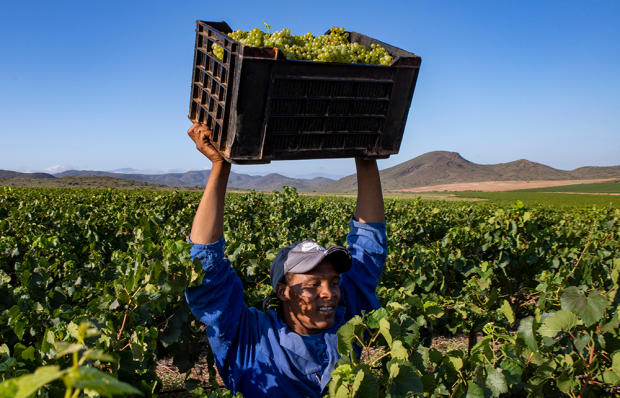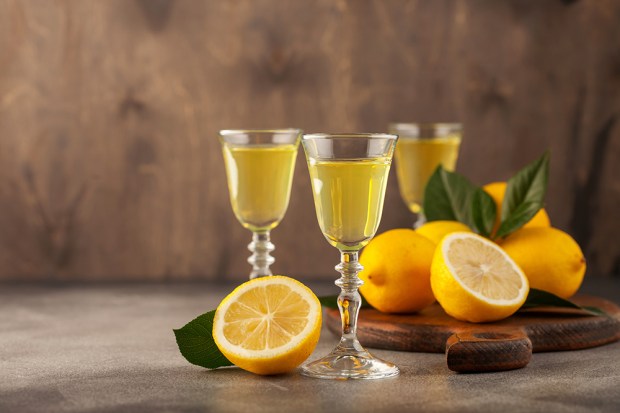In the later 1850s, Palmerston was Prime Minister: Gladstone, his Chancellor. It was a successful partnership between two very different characters. As Roy Jenkins used to say, Palmerston’s willingness to put up with Gladstone — never an easy subordinate — proves that he was more that a bombastic Regency rake. At different times, the pair made the two wisest comments ever to emerge from a Liberal (the only two wise comments?). Gladstone: ‘Money is best left to fructify in the pockets of the people.’ Palmerston: ‘Change, change, change: aren’t things bad enough already?’ If modern Liberals talked like that, their party might have some hope of survival.
Palmerston’s trenchancy came back to me while I was on my way to do some trenchering in a western part of England whose beauty is past change. I have friends who live in a wonderful, sprawling, endlessly welcoming house which they liken to a hobbit’s dwelling. Others call it Higgledy-Piggledy Hall. Smials, hobbit-hole, hall or whatever, it has all the necessary ingredients for civilised life: an overflow of bookshelves, a huge kitchen — the megalomphalos — a vaut-le-visite cellar, Montevedi’s Vespers, dogs, hens, donkeys and children.
Nor does change necessarily mean decay. It seems only yesterday that the chatelaine was a scampering hoyden. Now, one sees the lineaments of a future Lord Lieutenant. She is training herself for high office by fearlessness in the hunting field and by her choice of clothing. She used to own a weskit which looked as if it had been stitched together by the local poacher from uncured rabbit skins. Look on that poacher’s works, ye Paris collections, and despair. Never in the history of female apparel, never in all the dreams and creativity and catwalks of the hautest of haut-couturiers, has a garment been so entirely suited to its owner.
Alas, fate supervened. The lurcher cannot really be blamed (though he was). Show the dog the rabbit, as it were. The weskit was mangled. But there is work in progress. The other day, the huntress’s husband was looking in the freezer to work out a scoffing order for the various birds. ‘What are these?’ he enquired of ten funny-looking carcasses. ‘Oh, they’re not for eating. They are moles. Got a tanner lined up. Just need another couple and I’ll have a moleskin weskit made with real mole.’ The fashion world awaits.
On the first night, we drank Forts de Latour 2002. It was splendid and only just ready. Like any bottle which the house of Latour releases, it was fully worthy of the imprimatur. -Second wines from serious growths are rarely disappointing. La Reserve de Leoville-Barton is always enjoyable and I recently helped to drink a 2000 Sarget de Gruaud-Larose en magnum: excellent. But — a temerarious -comment — I suspect that Forts de Latour may be the best.
Sunday was the beginning of Advent. The children were rehearsing for a carol concert. Adeste Fideles was preferred to ‘O come, all ye faithful’, as it ought to be. ‘Lo, He abhorred not the Virgin’s womb’ sounds better in the obscurity of a learned language. Apropos abhorrence, one local vicar, a notorious naturist, has taken to -wearing a green collar: something to do with climate change. Such clerical pillocks make one despair of the C of E, but as long as there is sweet singing in the choir, all is not wholly lost.
We saluted advent and greenery by reaffirming the partnership between ourselves and the lower creation. Foie gras allows humble ducks and geese to elevate themselves in the great chain of being. They also serve which only waddle and are stuffed. With the foie we drank a Barsac, Ch. Suau 2001, which I had never heard of: more sweet singing, a most harmonious partnership. Thus, in the spirit of the three kings’ gifts, we started our approach to the greatest festival of the church.
Got something to add? Join the discussion and comment below.
Get 10 issues for just $10
Subscribe to The Spectator Australia today for the next 10 magazine issues, plus full online access, for just $10.
You might disagree with half of it, but you’ll enjoy reading all of it. Try your first month for free, then just $2 a week for the remainder of your first year.















Comments
Don't miss out
Join the conversation with other Spectator Australia readers. Subscribe to leave a comment.
SUBSCRIBEAlready a subscriber? Log in